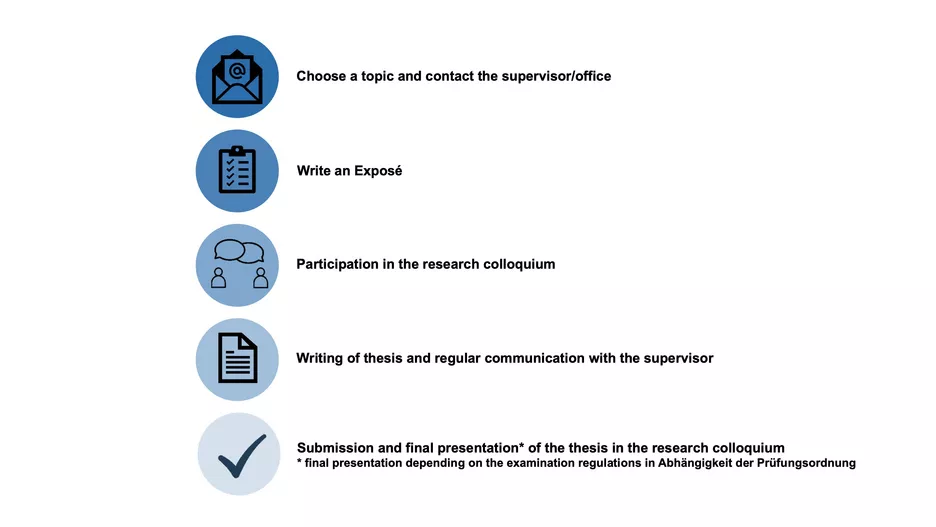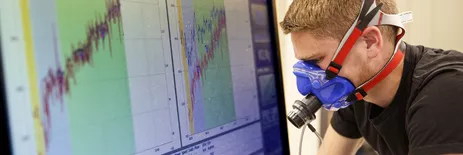Students have the opportunity to write their Bachelor's or Master's thesis in the field of exercise, nutrition, and health. Theses are possible in the following research areas:
- Impact of exercise on the regulation of food intake
- Energy balance and body composition in different population groups
- Exercise, weight loss, and bone health
- Energy and nutrient requirements of athletes
Specific topic suggestions with contact persons can be found on the notice board below.
Personal topic suggestions in these research areas are also welcome and will be gladly discussed. If interested, please contact our office (info.exnutri@mh.tum.de).
Process
Announced Topics
If you are interested in one of the announced topics, please contact the specified contact person directly. Briefly state your motivation for the topic in the email and, if necessary, provide any required prior knowledge (e.g., laboratory skills, data analysis).
Personal Topic Suggestions
In addition to the announced topics, we are also happy to supervise theses with personal topic suggestions. Please ensure that your suggestion is specific and ideally linked to a research question. Avoid inquiries like "something about the menstrual cycle and nutrition" or "something about nutrition in winter sports." Specific research questions would be: "I want to investigate how appetite changes over the course of the menstrual cycle." Or "I want to examine how caffeine affects the performance of cross-country skiers."
Found a Topic and Supervisor – What's Next
Once a supervisor tentatively agrees to supervise your thesis, you are required to write a proposal before starting the work. Even though a proposal may seem like extra work at first glance, it is very helpful for you and the supervisor as it outlines in advance which goals are to be achieved and how. After creating the proposal and having it reviewed by the supervisor, you will present your project in the research colloquium. Regular communication with the supervisor should take place over the course of the thesis. Appointments for this must be individually arranged with the respective supervisor. After submitting the thesis, a final presentation in the research colloquium is often mandatory. Please check in advance whether your examination regulations require a final presentation.

Research Colloquium
In the research colloquium, students exchange ideas with the scientific staff about their ideas, their approach, the scope and structure of their thesis. On the one hand this is intended to help the students by giving them tips on how to work scientifically. On the other hand, the research colloquium is intended to ensure the students keep the thread of the thesis and thus a successful degree.
